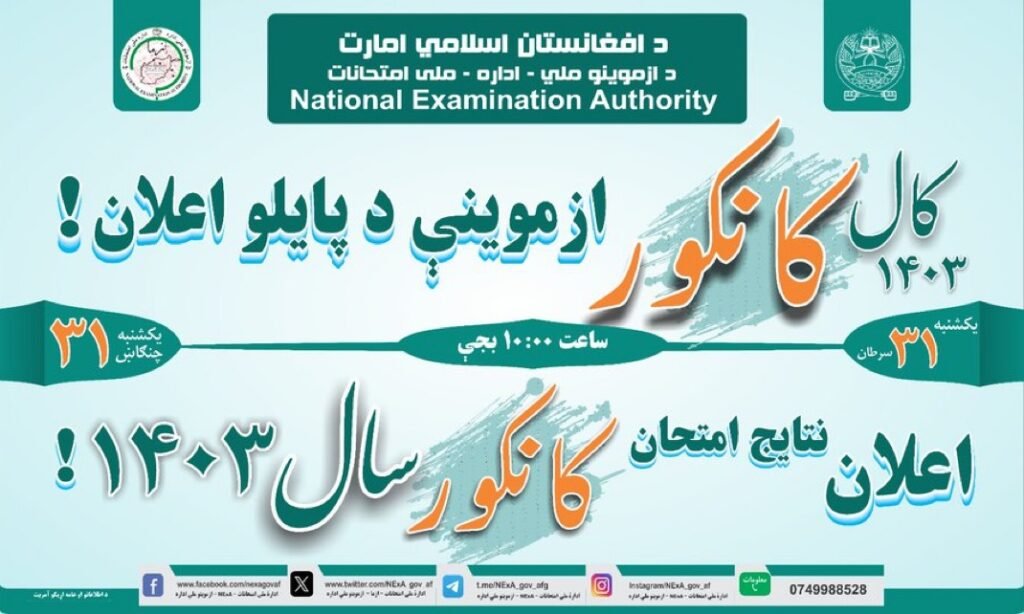Afghanistan’s Waning Entrance Exam Participation: A Multifaceted Challenge

By Ilhamuddin Afghan
A significant decline in participation rates for Afghanistan’s higher education entrance exams paints a concerning picture for the country’s future.
Economic hardship, restrictions on girls’ education, the flight of academic staff, and the nature of appointments under the Taliban regime all create a suffocating environment that discourages young Afghans from pursuing higher education.
Previously boasting over 300,000 annual participants, these exams now see a mere 97,000 test-takers, reflecting a worrying disengagement with higher education among Afghan youth.
One of the primary factors behind the reduced interest in entrance exams is the prevalent economic instability and high unemployment rates in Afghanistan.
Mullah Payinda Mohammad, 70, a resident of Afghanistan’s eastern Nangarhar province, exemplifies this challenge. He recounts the difficult decision of his four sons to abandon their studies after the Taliban’s return to power. While their financial support from abroad helps the family, their dreams of attending university have been sacrificed due to Afghanistan’s harsh economic realities.
Many recent graduates, like Kabul resident Abdul Shakoor, share similar experiences. Now working as a fruit vendor after graduation, Shakoor questions the value of higher education in a job market with limited opportunities.
“I didn’t participate in the entrance exam, because even if I graduate from the university, I will not find a job. It would be a waste of four years.” he said.
This perception of a bleak employment landscape discourages many from taking the entrance exam, rendering the path to higher education seem irrelevant.
The Taliban’s ban on girls’ education is another critical factor. Under the previous government, female students proudly comprised over 40% of exam participants. Now, with girls’ schools shuttered, their educational opportunities have vanished entirely.
This not only extinguishes the aspirations of young Afghan women but also demoralizes young men who witness their sisters and female relatives denied the right to learn. This widespread disillusionment with the education system fuels the decline in exam participation, highlighting the broader issue of limited educational prospects for both genders under the current regime.
The ongoing exodus of academic staff from Afghanistan further exacerbates the crisis. Since the Taliban take over, thousands of professors and educators have fled to countries like Canada, Australia, Americas or Europe leaving a significant void within the education system.
The previous government had invested heavily in training young Afghans at the bachelor’s and master’s levels, even facilitating advanced studies abroad. However, the current “brain drain” creates a critical shortage of qualified instructors. This weakens the education system’s capacity to deliver quality education and attract motivated students.
“People who had completed their master’s and doctorate degrees left Afghanistan. They are forced to work in restaurants as waiters or do menial jobs.” Mohammad Haleem, from eastern Laghman province, underscores this reality.
The nature of appointments under the Taliban regime also discourages young Afghans from pursuing higher education. Positions are often filled based on loyalty to the ideology rather than qualifications or specialized expertise.
This system prioritizes allegiance over competence, leading many young Afghans to believe that a university degree holds little value. Why pursue higher education when unwavering loyalty to the Taliban seems to be the key to success? This sense of despair contributes to the waning interest in academics among Afghan youth.
Ilhamuddin Afghan is a university professor based in Afghanistan.
Note: The contents of the article are of sole responsibility of the author. Afghan Diaspora Network will not be responsible for any inaccurate or incorrect statement in the articles.






